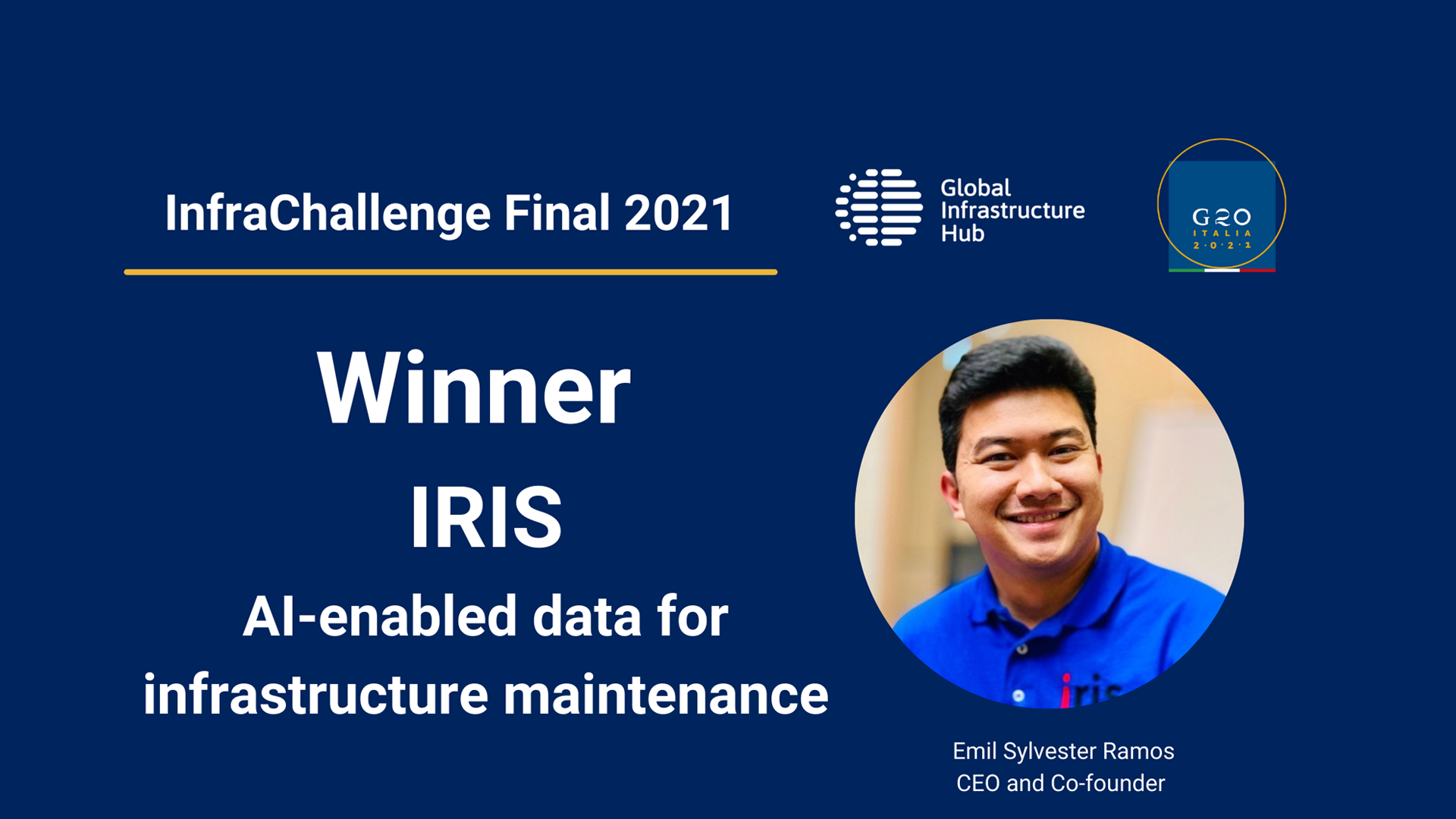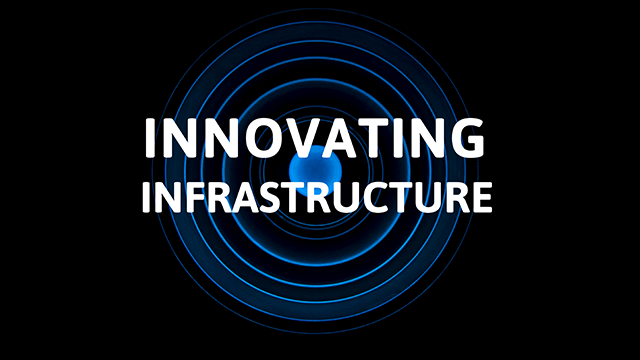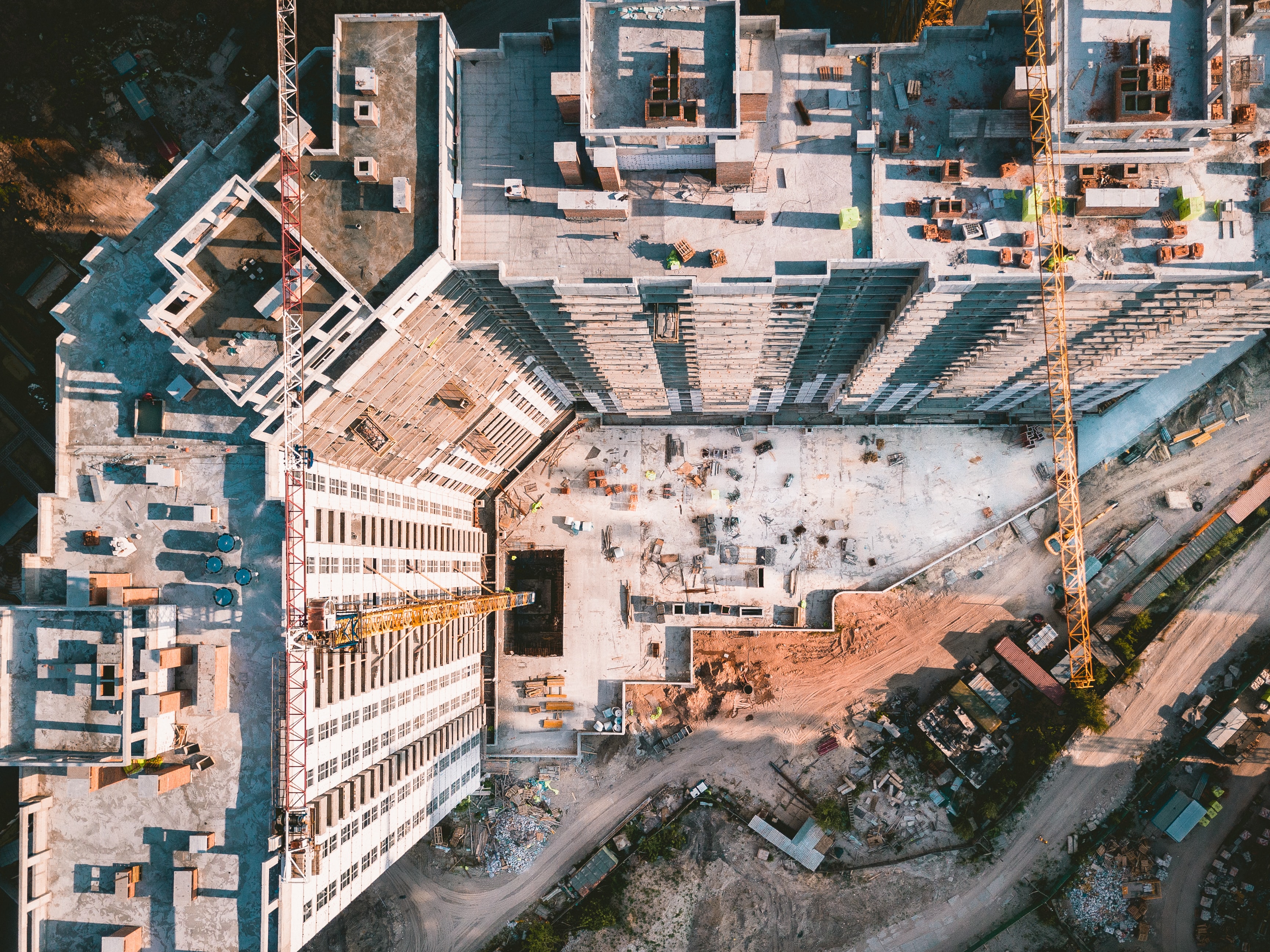926 results found
Featured results



More results
What role can the private sector play in a green transition? How is green financing implemented, and what are the current green financing trends? These are a few of the key questions that will be explored in this GI Hub and IFC webinar.
In 2019, Irish electricity company ESB was seeking a solution to help them understand the structural health of its 47-year-old Turlough Hill pumped storage station, which generates up to 292MW into the Irish grid during peak demand periods and – as Ireland’s only pumped storage station – has a crucial role in the country’s ongoing transition to renewable energy grid stabilisation.
AI-enabled cameras detect road hazards in real time, enabling faster and securer maintenance for safer roads. Winning InfraChallenge will assist Canadian start-up IRIS to scale globally and reach emerging countries.
Join the GI Hub and G20 Italian Presidency for day two of the InfraChallenge final, in which the Top 10 competitors will give their final pitches of their solutions, and the 2021 winner will be announced.
This GI Hub and IFC webinar discussed approaches to attracting institutional investors and mobilising capital markets, highlighting solutions and lessons learnt from two recent projects.
With a USD3.7 trillion global infrastructure investment need that continues to widen, and government debt levels substantially higher than they were after the global financial crisis, recent infrastructure bond issuances offer valuable lessons.
The GI Hub today launches a shorthand cost-benefit analysis tool for analysing the environmental, social, and economic (ESE) benefits of bus transport projects.
Innovating Infrastructure is a new podcast from the GI Hub that showcases new and emerging technology-based solutions to infrastructure challenges. Hosted by GI Hub’s Director of Thought Leadership, Monica Bennett the ten-part series delves deep into these solutions to find out how they will create impact towards a more resilient future.
Join the GI Hub and G20 Italian Presidency for the two-day InfraChallenge 2021 final, featuring sessions with expert guest speakers exploring technological innovations and their role in creating resilient infrastructure, and the final of the InfraChallenge competition with live announcement of the 2021 winner.
In this panel discussion, participants will be introduced to approaches to attracting institutional investors and mobilising capital markets, hearing solutions and lessons learnt from recent projects in India and South Africa.
As countries announce major infrastructure packages to stimulate their post-pandemic recovery, the sector faces two substantial and related challenges: climate change and a funding shortfall, writes Marie Lam-Frendo, Chief Executive Officer of the Global Infrastructure Hub.
In 2021, the Global Infrastructure Hub published the findings of a survey of G20 members that collected case studies and examples of projects or programs that demonstrate the benefits of QII or exemplify good practice in their countries or in recipient countries. This survey was undertaken at the request of the G20 Infrastructure Working Group (IWG). It can be accessed here.

Delivering quality infrastructure will increasingly become a key priority for governments globally, requiring substantial investment from both the public and the private sectors.
InfraChallenge 2021 invited ideas for building and maintaining better, more resilient infrastructure. Today we announce the Top 10 competitors.
Infrastructure projects are capital-intensive and emerging countries often rely on private investment to implement them. As projects generate revenues in local currency (usually escalated by local inflation), the mismatch between the revenues and the debt service in foreign currency represents a major risk. Without a reliable mechanism to properly mitigate the foreign exchange (FX) risk, relevant sources of potentially long-term and less expensive funding are not accessible. A deep assessment of the FX risk and the development of innovative mitigatory solutions is critical to amplify the offer of long-term credit facilities for infrastructure financing.



In March 2021, the Global Infrastructure Hub (GI Hub) and Infrastructure Australia hosted the inaugural International Forum of Infrastructure Bodies (I-Bodies). The golden thread running throughout the forum was the pivotal role I-Bodies play in either strategic planning for infrastructure or funding and financing infrastructure in their jurisdictions.
Transparency International Australia is launching a new project to identify the loopholes that enable corruption to thrive in the infrastructure sector in the Asia-Pacific region. The first step in this project is the development and testing of a new tool, to help understand corruption risks in transnational infrastructure projects in the Asia-Pacific region. The Infrastructure Corruption Risk Assessment Tool will help its users identify, assess and address corruption risks in the process of approving infrastructure projects. The global demand for infrastructure, and many governments’ eagerness to facilitate large volumes of infrastructure spending, means this tool comes at a critical time. Many countries, including the UK, Australia and France, as well as countries in the Asia-Pacific, have responded to the economic downturn caused by the coronavirus pandemic with commitments to boost infrastructure spending. While this increased funding is welcome, it comes with an increased risk of corruption.
Sidewalk Infrastructure Partners (SIP) and a set of founding partners, have recently launched the Innovative Infrastructure Initiative (I³); a new consortium championing and accelerating transformative infrastructure projects in America that use technology and innovation to meet pressing infrastructure needs.
On 3 June, the Italian G20 Presidency in collaboration with the OECD and D20 Long-Term Investor Club, hosted an Infrastructure Investors Dialogue: Financing Sustainable Infrastructure for Recovery. The objective of the dialogue was to leverage ongoing efforts to advance collaboration between the public and private sectors, with a particular focus on unlocking further investment and sustainability. A range of leading experts joined and contributed to the session including Global Infrastructure Hub CEO Marie Lam-Frendo.



 New Deals: Funding solutions for the future of infrastructure
New Deals: Funding solutions for the future of infrastructure


















